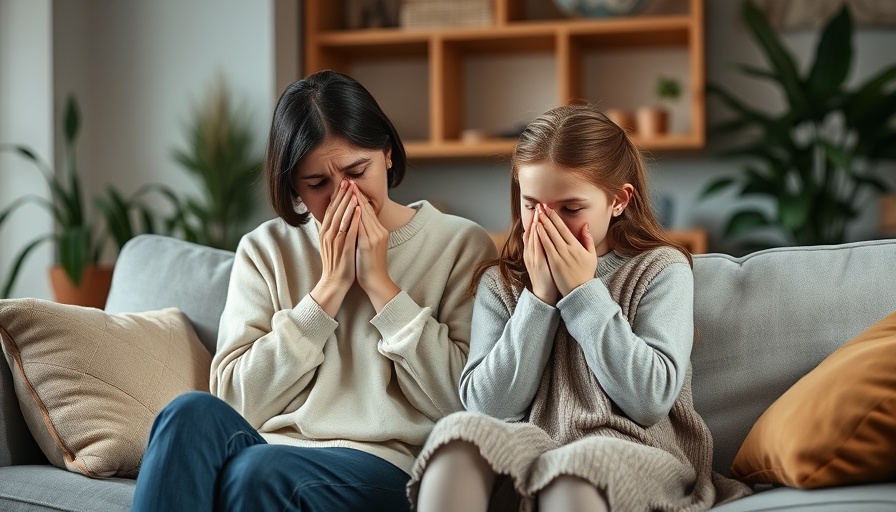
Understanding the Resurgence of Measles
Measles was once celebrated as a disease of the past, thanks to widespread vaccination efforts that eradicated it in many parts of the world. Unfortunately, recent years have seen a troubling uptick in cases, raising alarms among health professionals and families alike. Why is this happening? Studies point to declining vaccination rates, fueled by misinformation and a growing number of unvaccinated travelers heading to outbreak-prone regions.
What Is Measles and Its Symptoms?
Measles is a highly contagious viral infection that typically presents with a set of distinctive symptoms. Patients may experience a high fever, persistent cough, runny nose, red eyes, and a characteristic skin rash that can spread across the body. It's vital to understand these signs, as early diagnosis can preempt serious complications. The virus can linger in the air for up to two hours after an infected person has left a room, easily infecting those who are unvaccinated.
The Population Most at Risk
While no one is completely immune to measles, certain groups are at a significantly higher risk of contracting the virus and experiencing serious health complications. Unvaccinated children and adults, infants too young to be vaccinated, pregnant women, and healthcare workers without immunity fall squarely into this high-risk category. Knowledge of who is most vulnerable can empower communities to encourage vaccination efforts and protective health measures.
Prevention: Everyone's Responsibility
When it comes to preventing the comeback of measles, vaccination remains the most effective tool we have. The measles vaccine boasts a remarkable 97% efficacy rate, making it one of the most successful vaccines available. But vaccination is just the beginning. People must also actively engage in preventive practices, including sharing accurate information about vaccinations and supporting those in their communities who may be hesitant. Here are key preventive strategies to consider:
1. Get Vaccinated
First and foremost, everyone in the eligible age brackets should receive the measles vaccine. Families should ensure that their children are fully vaccinated according to CDC guidelines, as this will dramatically reduce the risk of outbreaks in schools and communities where children gather.
2. Keep Informed and Share Knowledge
Staying informed about the current status of measles outbreaks and understanding the importance of vaccines can empower individuals to make informed choices. Understanding the context around vaccination rates and public health can help you communicate the need for vaccines to friends and family.
3. Protect Vulnerable Populations
Take extra care to protect those who are most at risk. This includes helping pregnant women ensure they are vaccinated, educating about the risks of unvaccinated travelers, and charitable outreach to assist communities with low vaccination rates.
4. Listen and Address Concerns
Engaging those who are hesitant to vaccinate with compassion and factual information can make a difference. This may require listening to their concerns and addressing them directly, using real stories and accessible statistics to build trust.
5. Maintain Hygiene Standards
Practice good hygiene, especially in places like schools and daycare centers where exposure can easily occur. Encourage frequent handwashing and disinfecting common surfaces and ensure sick individuals stay home to minimize the risk of spread.
Coping with Measles: Aftercare Tips
Although prevention is critical, understanding how to care for yourself or a loved one after a measles infection is also essential. After contracting measles, recovery can be slow, and it’s vital to focus on rest, hydration, and nutrition to regain strength. Vaccines can still help if administered within three days of exposure, making awareness crucial during outbreaks.
Global Responsibility: The Fight Against Measles
As outbreaks continue to spring up globally, it’s important for each of us to take responsibility not just for our health, but for the health of our communities. The resurgence of measles may seem daunting, but with proactive measures, collective activism, and adherence to vaccination recommendations, we can effectively combat it.
It’s not just about personal safety; it’s about community health. Each step we take towards increasing vaccination rates not only protects ourselves but strengthens the immunity of those around us.
 Add Row
Add Row  Add
Add 



 Add Row
Add Row  Add
Add 
Write A Comment